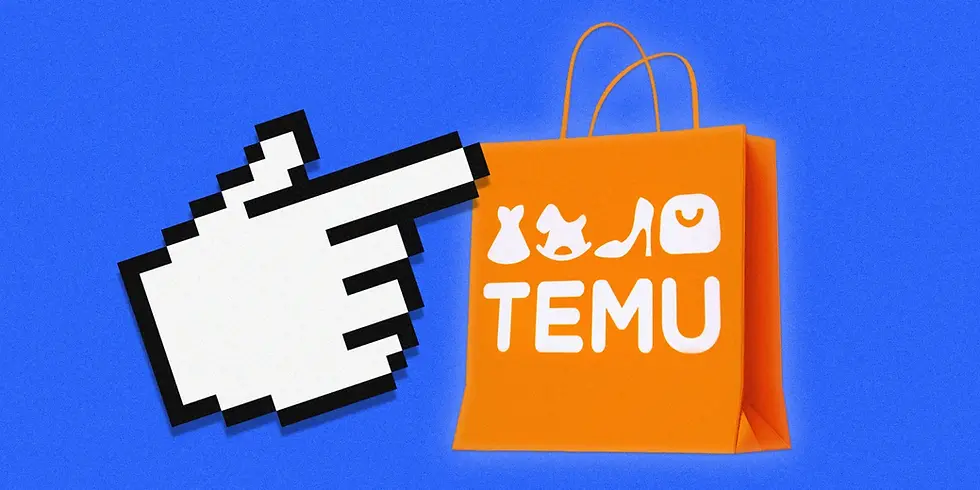New Research from Twitter on What Consumers Want to See from Brands During COVID-19 - APAC Examples
- ClickInsights

- Apr 27, 2020
- 4 min read
Updated: Apr 5, 2023
In the context of COVID-19, many businesses are looking for guidance on what to say both organically and through promoted products. Twitter asked a panel of their users in the US how they felt about advertising during COVID-19.
Here are some of the findings:
64% said brands should continue advertising products as normal
52% agreed that seeing/hearing ads gives them a sense of normality
77% agreed they feel more positively about brands making an effort to support society at the moment
People expect you to change your tone to reflect the new context. Only 7% of respondents said brands should continue using their normal brand tone of voice.
Specific to COVID-19, when asked what brands could do right now that would be useful, here’s what respondents in the US said, and examples (not necessarily from Twitter) of APAC brands that are answering the call:
Those that can, should. 82% of respondents said brands should support frontline health staff.
In Singapore, 5000 care packages containing items such as health supplements and masks were delivered to 12 hospitals and polyclinics over two weeks, in an initiative by more than 60 Singapore companies to show support for frontline workers fighting the coronavirus outbreak.
The participating companies include Mediacorp, BMW, Giant, Hush Puppies Footwear, Lazada Singapore, KFC, MSIG Insurance and Samsung Electronics Singapore.
People aren’t just thinking of their own well-being during these times. 86% of respondents said brands should support vulnerable people in their community.
Thai Union Group, a seafood company in Thailand, donated 1 million Thai Baht worth of food items to the SATI Foundation to support 20,000 households affected by the COVID-19 pandemic in Bangkok.
Singapore supermarket chain NTUC FairPrice launched its first 'priority shopping hour' trial on March 30 to more vulnerable community members including the elderly, persons with disabilities (PWDs) and pregnant women can shop for daily necessities under safer distancing conditions.
Australia’s national suicide prevention service Lifeline has been in great demand, due in part to the unprecedented times we are living in, as they receive calls every 30 seconds. To raise awareness, some brands donated their TV and radio placements to Lifeline to help them achieve their fundraising goal of AU$5 million.
Brands that have agreed to donate 30-second placements include Westpac, Woolworths, Bunnings, Uncle Tobys, Vegemite, Haagen Dazs, Officeworks, Old El Paso, Channel 7, and Southern Cross Austereo.
Stick to the facts: 89% said brands should provide reliable, accurate information.
With the recent implementation of stricter circuit breaker measures in Singapore, F&B outlets selling baked goods were required to close their stores, leading to a lot of confusion. Coffee Bean & Tea Leaf was just one of many businesses to take to social media to keep their customers up to date and reassured on the situation.
Despite living in a time of social distancing, 77% of respondents said brands should support their local community.
Tiger Beer pledged RM1.5 million to support Malaysian street food vendors, coffee shops and food courts across the country as they face reduced income due to the ongoing Movement Control Order (MCO) in the country.

Deliveroo Hong Kong also reduced commission rates to 5% for all pick-up orders to ease restaurants’ burdens during this time until the end of June. Over 1,500 new restaurants have joined the service since January, with 60-70% of them opting in to join the pick-up service.

Be transparent: 80% said brands should show how they’re supporting their employees. FMCG company Procter & Gamble (P&G) announced that it is producing face masks and hand sanitizers for its employees to protect their health and safety and to ensure that the company can continue to serve Indian consumers with cleaning, health and hygiene products during this time when they are needed the most.
Gojek is supporting its drivers under the GoalBetter programme, partnering Esso and DBS to provide drivers with fuel rebates, Singapore-based insurance company Gigacover for prolonged medical leave insurance, and earnings protection coverage of $80 per day and Doctor Anywhere - an on-demand video consultation platform that connects users to certified doctors - to provide all active drivers access to online and physical medical consultation services.

People need all the help they can get. 70% of respondents said brands should provide prompt customer service.
Have a heart: 74% of respondents said brands should showcase acts of kindness.
Hong Kong virtual insurance provider Avo Insurance offered healthcare professionals free Coronavirus Disease Protection as an expression of gratitude for their dedication and tireless efforts during this time.

Procter & Gamble (P&G) in Singapore is donating 300,000 care packs worth about $5 million to migrant workers as part of relief efforts during the coronavirus crisis.
Who couldn’t use a pick-me-up right about now? 70% of respondents said brands should boost positivity and share positive stories.
The panic surrounding COVID-19 has resulted in chaotic panic-buying and hoarding of goods. Carousell's #ChooseToGive initiative urges its users to give freely instead of hoarding by highlighting the stories of Singaporeans who have gone the extra mile, including Jena Lim, a single mum who pioneered free giving on Carousell.
For more details, Twitter has also updated its COVID-19 advertising policy and have new research and guidance to share.



google 优化 seo技术+jingcheng-seo.com+秒收录;
Fortune Tiger Fortune Tiger;
Fortune Tiger Fortune Tiger;
Fortune Tiger Fortune Tiger;
Fortune Tiger Slots Fortune…
站群/ 站群
gamesimes gamesimes;
03topgame 03topgame
EPS Machine EPS Cutting…
EPS Machine EPS and…
EPP Machine EPP Shape…
Fortune Tiger Fortune Tiger;
EPS Machine EPS and…
betwin betwin;
777 777;
slots slots;
Fortune Tiger Fortune Tiger;